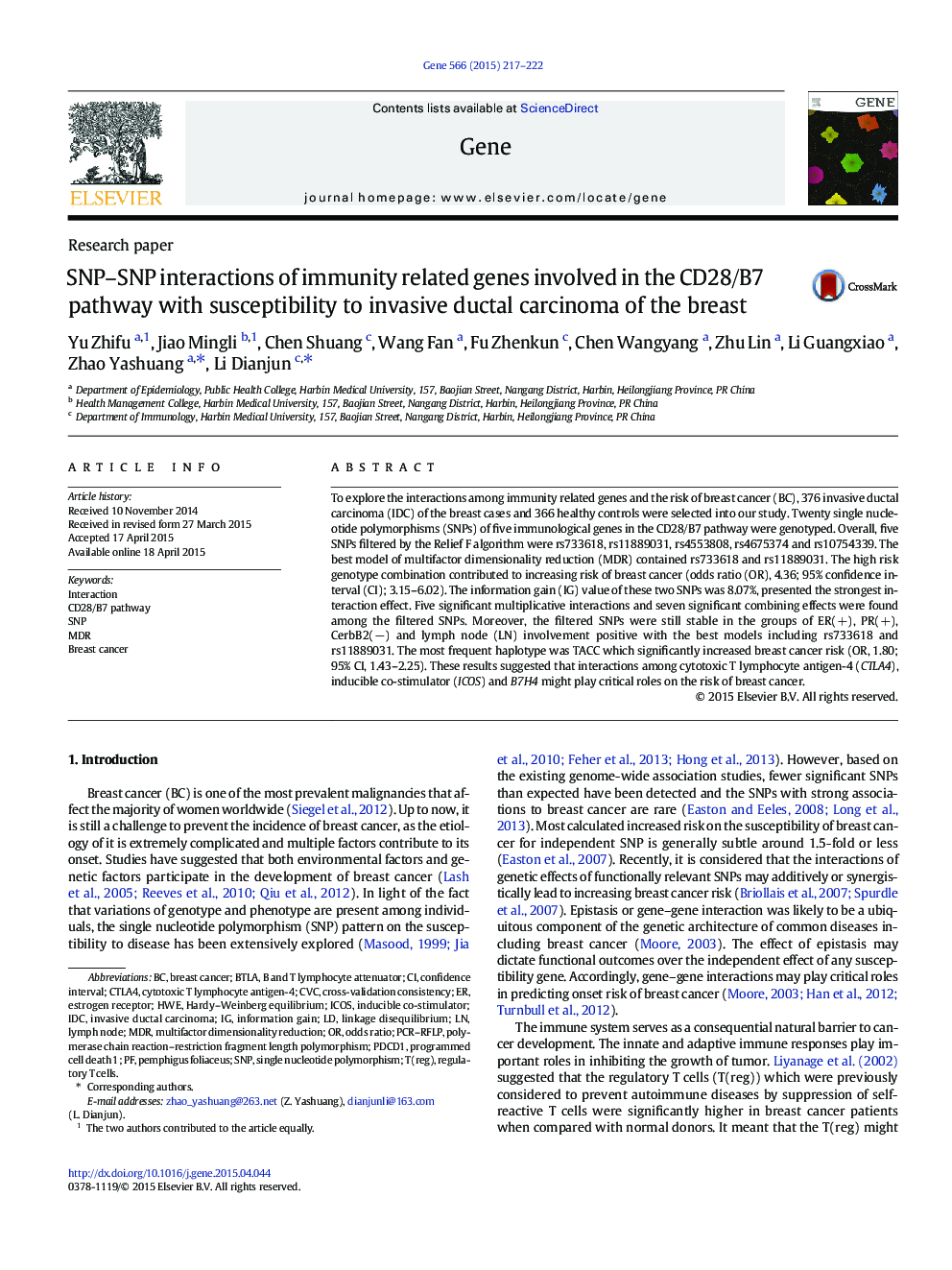| Article ID | Journal | Published Year | Pages | File Type |
|---|---|---|---|---|
| 2815609 | Gene | 2015 | 6 Pages |
•We investigated the SNP–SNP interactions with the risk of breast cancer.•There were interactions and combining effects among CTLA4, ICOS and B7H4.•Different haplotypes were associated with breast cancer risk.•Interactions among CTLA4, ICOS and B7H4 may impact the onset of breast cancer.•Genes in the CD28/B7 pathway interacted with each other.
To explore the interactions among immunity related genes and the risk of breast cancer (BC), 376 invasive ductal carcinoma (IDC) of the breast cases and 366 healthy controls were selected into our study. Twenty single nucleotide polymorphisms (SNPs) of five immunological genes in the CD28/B7 pathway were genotyped. Overall, five SNPs filtered by the Relief F algorithm were rs733618, rs11889031, rs4553808, rs4675374 and rs10754339. The best model of multifactor dimensionality reduction (MDR) contained rs733618 and rs11889031. The high risk genotype combination contributed to increasing risk of breast cancer (odds ratio (OR), 4.36; 95% confidence interval (CI); 3.15–6.02). The information gain (IG) value of these two SNPs was 8.07%, presented the strongest interaction effect. Five significant multiplicative interactions and seven significant combining effects were found among the filtered SNPs. Moreover, the filtered SNPs were still stable in the groups of ER(+), PR(+), CerbB2(−) and lymph node (LN) involvement positive with the best models including rs733618 and rs11889031. The most frequent haplotype was TACC which significantly increased breast cancer risk (OR, 1.80; 95% CI, 1.43–2.25). These results suggested that interactions among cytotoxic T lymphocyte antigen-4 (CTLA4), inducible co-stimulator (ICOS) and B7H4 might play critical roles on the risk of breast cancer.
